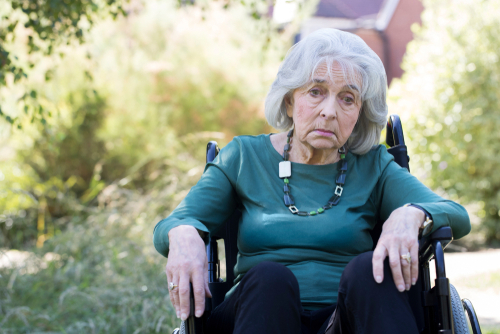A number of systemic problems that existed prior to the coronavirus pandemic are responsible for the failure of American nursing homes against the virus, says a recent article in the New York Times, and unless certain measures are implemented toward change, the nation’s most vulnerable citizens will be in no better position to endure future crises. Staffing shortages, underpaid staff, poor regulation, and big operators are all reasons why nursing homes are failing against COVID-19.
The February 2020 COVID-19 outbreak in a Seattle area nursing home marked the country’s first eruption of the coronavirus pandemic. As that event’s one-year anniversary approaches, the statistics for the virus’s impact on long-term care facilities remains staggering. According to the article, not only have more than 120,000 American nursing home workers and residents succumbed to COVID, but also the rate of death among residents has increased three-fold since July.
In addition to the persistent rate of illness and death in long-term care facilities, elderly residents continue to show negative health impacts resulting from COVID-related isolation and neglect. The NY Times piece referenced dementia patients suffering from depression, weight loss, and lowered mobility and speech after periods of isolation during quarantines for COVID. The article also pointed to incidents of nursing home neglect: residents going weeks without having been bathed or having their teeth cleaned, as well as one case in which a resident’s untreated rash developed into an open sore, proving that nursing homes are failing against COVID-19.
According to the article, the main issues preventing long-term care facilities from adequately battling the coronavirus pandemic are those that have long plagued the industry, namely:
- Staffing Shortages: Adequate staff-to-resident ratios directly impact disease management. Having worker shortages at a time when the demand for staff is four to five times higher than usual is considered a top problem during the pandemic.
- Underpaid Staff: Direct caregiving is a taxing—and in 2020, a dangerous—job. Not providing adequate pay or other incentives has contributed to low staff retention and few hires.
- Poor Regulation:
-
- Under President Trump, the Centers for Medicare and Medicaid Services (C.M.S.) cut facility inspections, reduced health violation fines, and replaced certified aides with lower-trained temporary nursing assistants.
- Millions of dollars of emergency funding during COVID was dispersed, even to companies accused of labor violations and Medicare fraud, with no strings attached.
- The majority of states protect long-term care providers from Covid-19 lawsuits that might be brought by residents and their loved ones, or nursing home workers. Legislation is pending to extend such immunity across the country.
- Big Operators: For-profit companies run 70 percent of American nursing homes, using practices that have resulted in poor quality care and low staffing.
The article proposed a number of suggestions for the regulatory bodies under the incoming Biden administration, including the following:
- C.M.S. should impose strict accounting requirements on long-term care facilities to ensure that Medicaid and Medicare funding goes to caregiving rather than toward profits.
- Assisted-living facilities that provide care for Medicaid and Medicare patients should be subject to the same C.M.S. regulation as nursing homes to remove regulatory discrepancies and discourage the kind of private-equity ownership that results in questionable use of funding.
- The government ought to set a minimum staffing requirement for every nursing home resident, such as that introduced in a bill to Congress in 2019.
- A wage increase should be made to certified nursing assistants to inspire an increase in quality care.
- The new administration should allocate any resources necessary to revamp health and workplace inspections.
Protecting Your Loved One during a Crisis
The impact of the coronavirus pandemic on Pennsylvania and New Jersey nursing homes calls into question the well-being and safety of your loved one. It is paramount in these times to ensure your loved one’s Philadelphia/PA or NJ facility meets every health, safety, and quality care standard. If the quality of a Pennsylvania or New Jersey nursing home during COVID-19 causes concern, or if you suspect neglect, abuse, or fraud has occurred at the Pennsylvania, Philadelphia, or New Jersey nursing home where your loved one lives, please contact nursing home abuse attorney Brian P. Murphy to discover your legal rights and options.







